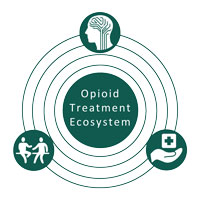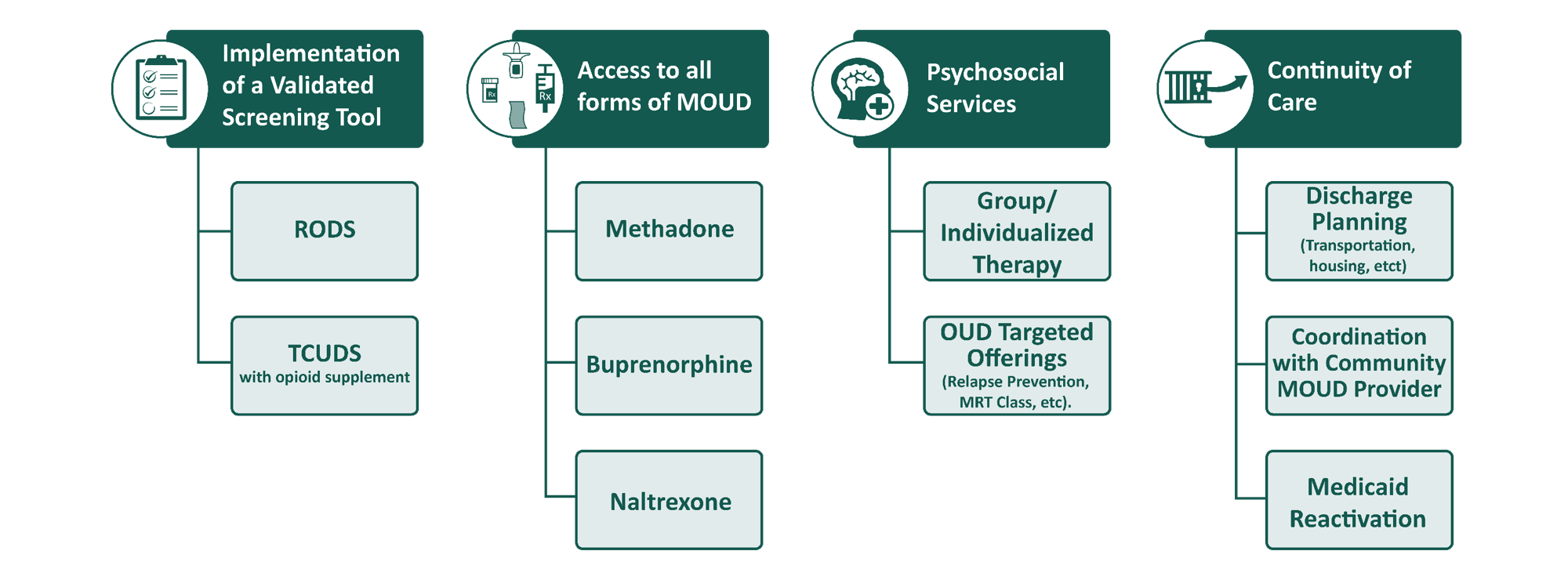CBHJ offering technical assistance to Michigan counties looking to improve opioid use disorder treatment offered inside their jail
 Hundreds of people die of overdose deaths in the United States every day, and people who have been incarcerated are at significant risk for overdose following release, especially within the first two weeks. Research suggests that at least 14 percent of people in Michigan’s jails have opioid use disorder (OUD). County jails serve as a pivotal touchpoint where behavioral health partners can intervene with people who have an OUD by providing access to FDA approved medications and corresponding psychosocial services.
Hundreds of people die of overdose deaths in the United States every day, and people who have been incarcerated are at significant risk for overdose following release, especially within the first two weeks. Research suggests that at least 14 percent of people in Michigan’s jails have opioid use disorder (OUD). County jails serve as a pivotal touchpoint where behavioral health partners can intervene with people who have an OUD by providing access to FDA approved medications and corresponding psychosocial services.
Support and resources for Sheriff's offices considering implementation
Jail facilities that do not address OUD according to an evidence-based standard of care may find themselves exposed to increasing liability and possible litigation. However, initiating or improving treatment offerings for incarcerated populations at the county level poses a number of unique challenges. Thus, the Center for Behavioral Health and Justice (CBHJ) at the Wayne State University School of Social Work is offering support and resources to Michigan’s Sheriff’s Offices considering implementation.
Technical assistance from the CBHJ can be initiated at no cost to the county and incorporates evidence-based practices to provide treatment for OUD while incarcerated and to ensure continuity of care post-release. Full implementation of this model includes the use of validated screening tools, access to all three forms of FDA-approved medications for OUD, adjunctive psychosocial services, and development of a continuity of care plan. The CBHJ will provide certification to county jails who sustain at least 90% fidelity to this model for two consecutive months.
The CBHJ has over a decade of experience facilitating collaboration between criminal-legal stakeholders and behavioral health treatment systems. We currently work with 26 county jail facilities across the state to facilitate these collaborations. With funding from the Michigan Opioid Partnership and the Michigan Health Endowment Fund, the CBHJ started the Opioid Treatment Ecosystem (OTE) initiative in 2019. The goal of the initiative is to foster sustainable alliances with community providers to change the cultural landscape around substance use disorder and decrease overdose deaths through prevention, treatment, harm reduction and sustained recovery.
Contact or email the CBHJ to learn more and get started.
About the Center for Behavioral Health and Justice: The Wayne State University School of Social Work Center for Behavioral Health and envisions communities in which research, data, and best practices are used by multiple stakeholders to enhance the optimal well-being of individuals with mental illness and/or substance use disorders who come into contact with the criminal/legal system. Learn more
About the Michigan Health Endowment Fund: The Michigan Health Endowment Fund is a philanthropic foundation that works to improve the health and wellness of Michigan residents while reducing healthcare costs. The Health Fund supports organizations across Michigan, from grassroots groups addressing local health challenges to large agencies working in every county. Learn more
About the Michigan Opioid Partnership: The Michigan Opioid Partnership (MOP) is a public-private collaborative including the state of Michigan and key nonprofit funders, whose mission is to decrease Michigan opioid overdoses and deaths through prevention, treatment, harm reduction and sustained recovery. Learn more
